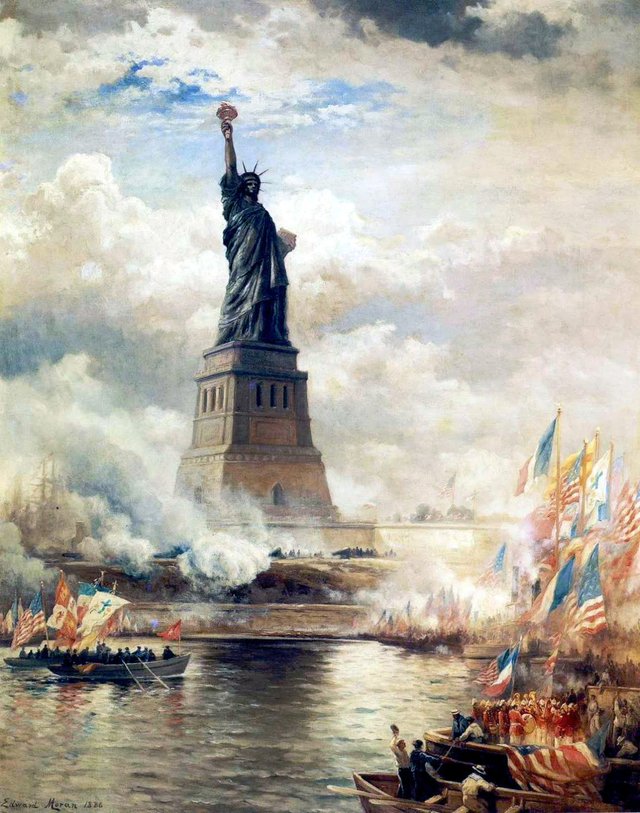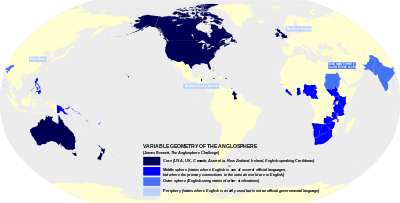Inventing Freedom: The Story of the Anglosphere
Daniel Hannan's Ode to the West
 image
image
Daniel Hannan is a British member of the European Parliament, who says his career as a historian was short circuited by life as a politician. His book, “Inventing Freedom: How the English-Speaking Peoples Made the Modern World”, is a history and hence a labor of love. It tells the story of the Anglosphere that will inform most, especially Americans.
Curiously, the term “Anglosphere” is of recent origins – Neil Stephenson in the Diamond Age in 1995. I read that book, and I recall the term being used in a racist/ethnic sense, but that is not its current use or meaning. The Anglosphere has as its core members the UK, the U.S., Canada, Australia, and New Zealand. The peripheral members include the former British colonial outposts: Singapore, Hong Kong, the British Caribbean archipelago (e.g. Bermuda) and miscellaneous other islands; as well as South Africa, and most importantly, India.
James C. Bennett, an American writer, describes the Anglosphere’s shared values as:
. . . individualism, the rule of law, honoring contract and covenants, and the elevation of freedom to the first rank of political and cultural values. Nations comprising the Anglosphere share a common historical narrative in the Magna Carta, the English and American Bills of Rights, and such Common Law principles as trial by jury, presumption of innocence and “a man’s home is his castle” are taken for granted.
To that list could be added free speech, and religious tolerance drawing on a common heritage of Christianity. Hannan writes:
This book tells the story of freedom—which is to say, it tells the story of the Anglosphere. I realize that this statement might strike some readers as smug, triumphalist, even racist. But I hope, over the course of the story, to show you that it is none of those things. From the first, the Anglosphere was a civil rather than an ethnic concept: that was a large part of its strength. While a few Victorian writers tried to explain the success of the English-speaking peoples in racial terms [ed.: Darwin for instance], their arguments were controversial even at the time and are untenable today. The reason that a child of Greek parents in Melbourne is wealthier and freer than his cousin in Mytilene has nothing to do with race and everything to do with political structures.
The value of the book for me is that it traced the development of many of the ideas that animate America much farther back than I realized (I guess I was a bit of chauvinistic American, who thought all good thing began on the Eastern Shore). Much of Hannan’s book is a history of England, which I found fascinating. For instance, I once read a history of Russia, and when I was done concluded that nothing much of great import (for the good) happened. The history of most places is like that -- just a repeating cycle of stasis punctuated by terror. But the history of England is much different, with an almost constant battle for individual freedom and the rule of law standing before and above the rulers. This battle breaks neatly into two groups: the Whigs and the Tories.
I could never keep the Whigs and Tories straight, but this book cleared it up for me. The American Revolution was a Whig rebellion against the Crown, and it was a continuation of a civil war between the two groups that was simmering in England at the time. The Crown found it difficult to recruit for the war at home, and that led to the infamous use of Prussians mercenaries in the Colonies. There were lots of American Tories, and after the Revolution, many left for Canada, some Florida.
Wither the Anglosphere?
 Image: Nagihuin - The Anglosphere Challenge
Image: Nagihuin - The Anglosphere Challenge
Hannan feels that the values of the Anglosphere are universal, and so will survive. He gives the example of immigrant groups in Australia voting for maintaining the Monarchy, which bemused the white Anglos who led the anti-Monarchy movement. He also has good things to say about India, and their ability to maintain the pillars of free society against backsliding.
One of the strengths Hannan sees in the modern world is the Internet. It frees information. Hannan notes the mainstream British media’s dismay with the fact that the people ignore their constant reporting on EU politics, but passionately surf for news of the latest election battles in the Anglosphere states. It has been suggested that the term Hillbilly originated in 17th-century Ireland as a term for Protestant supporters (“Billy Boys”) of King William III, and there are now groups on the Internet dedicated to that proposition.
I hope that is what Steemit will be – a place where a disparate group of individuals sharing an interest in a topic can gather. It’s hard to find an interested discussion group for esoteric topics in a bar.
So, in Hannan’s view, the Internet will become like the wind carrying the intellectual seeds of the Anglosphere to balmy climes and wastelands alike. In fact, the Anglosphere is like the latest technology, like the Internet – most won’t understand it, but some people will be lucky enough to employ it to better their lives.
This is a very nice and interesting post , the author of Respect )
"The Anglosphere has as its core members the UK, the U.S., Canada, Australia, and New Zealand."
AKA the members of The Five Eyes, https://en.wikipedia.org/wiki/Five_Eyes
which Luke Gardner wrote about in this book
https://steemit.com/anarchism/@plotbot2015/oc-book-review-the-snowden-files
Thanks for that. The Five Eyes. Cool. :)
Thanks redq, but being English and educated about the development of the largest empire in history, I have misgivings about the concept of the Anglosphere as a solely positive thing. If it does exist, it was most definitely built off the back of war and massive global exploitation, both human and environmental . Cheers.
Hi Chris, This, from the French philosopher Pascal Bruckner’s “The Ideology Of Catastrophe”, pretty much sums up my view: